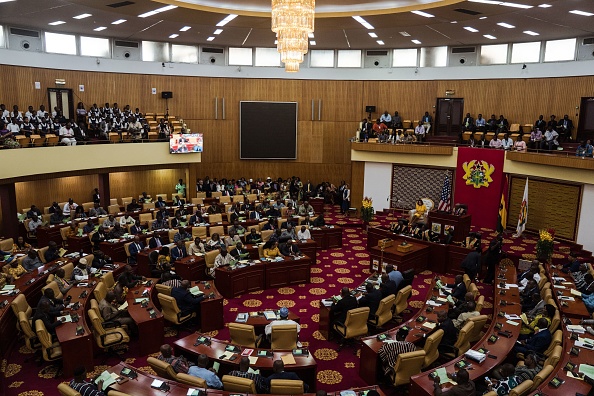Accra – Ghana’s parliament on Friday rejected the government’s 2022 budget proposal due to concerns over an electronic banking levy.
It was the first time the national budget has been rejected since 1981 in the West African country.
Ghana’s parliament is split between the two main parties following an election a year ago, increasing the risk of gridlock as the country struggles to rebound from the impact of the global pandemic and a heavy debt burden.
Friday’s setback came after the government introduced a proposed new levy on electronic bank transactions, including popular mobile phone money apps.
Ruling New Patriotic Party (NPP) lawmakers walked out after accusing the house speaker of bias because he said the finance minister should not be present during the vote.
ALSO READ | Nigeria, Ghana sprint to join digital currency race
The opposition MPs then voted down the proposal.
“The 2022 budget has been rejected by Parliament,” opposition lawmaker Sam George wrote in a Tweet. “We as a minority took a stand with the people of Ghana to reject a budget that had the obnoxious E-Levy, increased government fees and charges. Victory for Ghana.”
In January, soldiers were forced to enter Ghana’s parliament to break up fights between rival lawmakers at odds over the election results.
President Nana Akufo-Addo’s ruling party will now have to negotiate with the opposition party in parliament to reach a compromise over the budget proposal.
Ghana is touted as a stable democracy in volatile West Africa, although the 2021 elections were marked by opposition accusations of fraud and five people died in violence.
Follow African Insider on Facebook, Twitter and Instagram
Picture: Getty Images
Source: AFP
For more African news, visit Africaninsider.com


